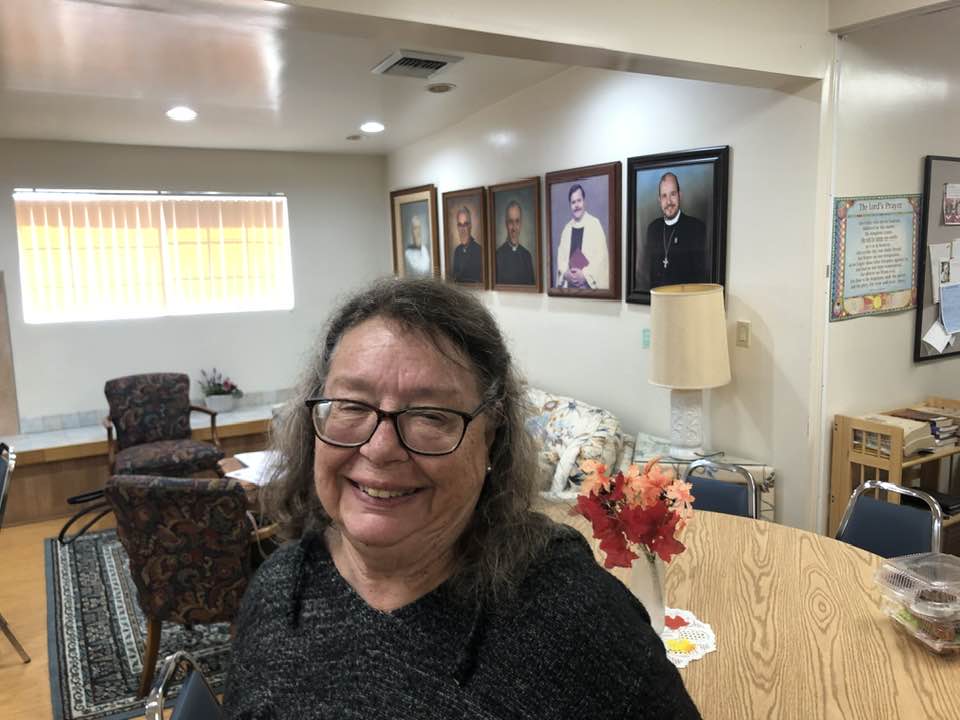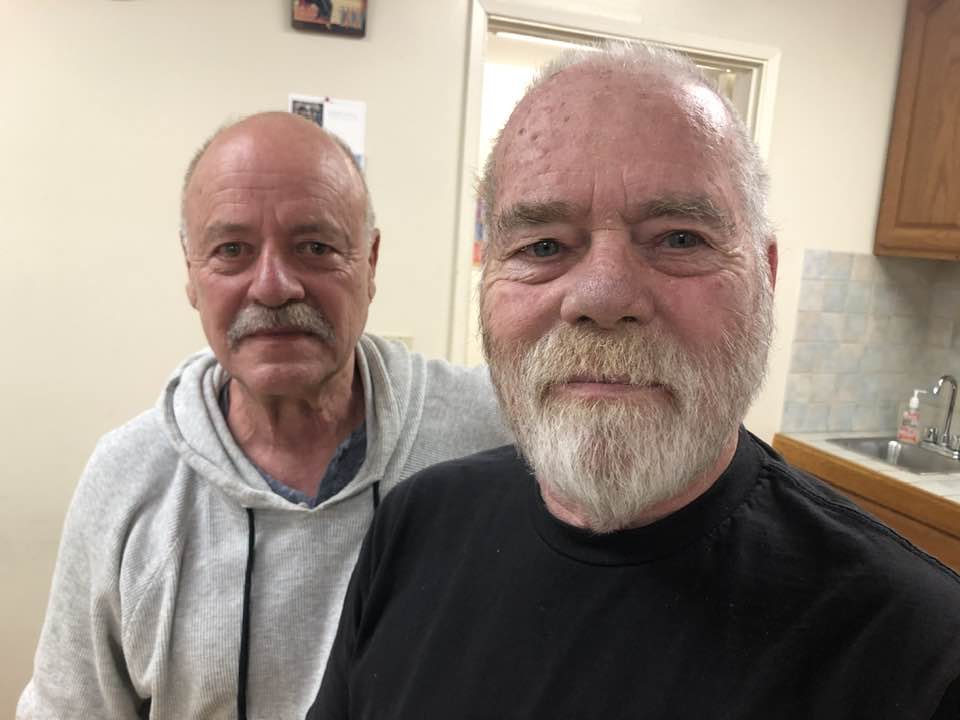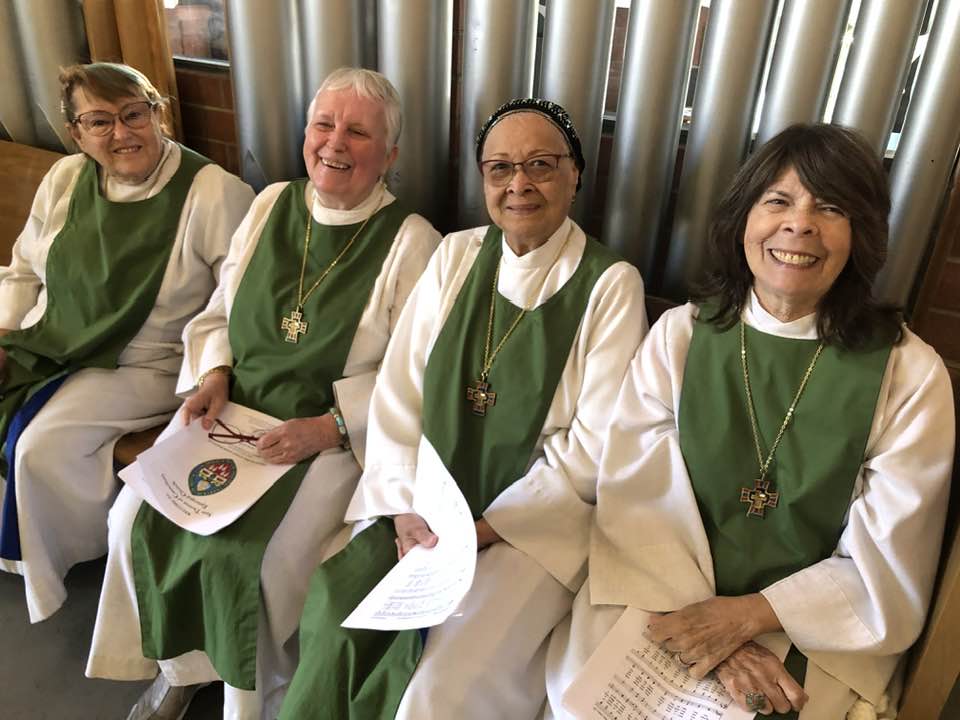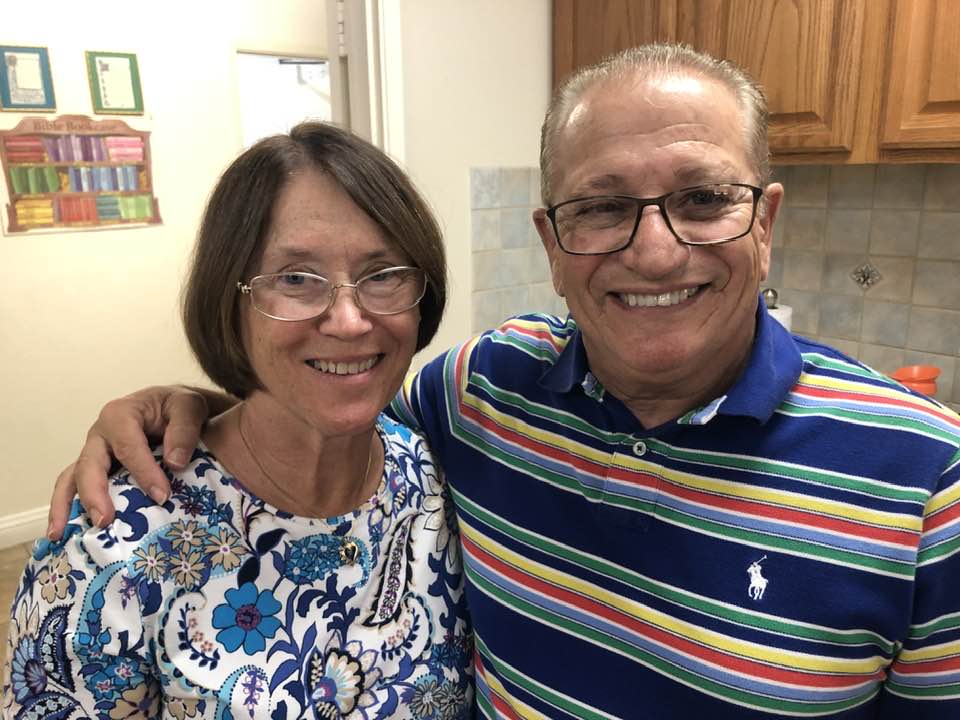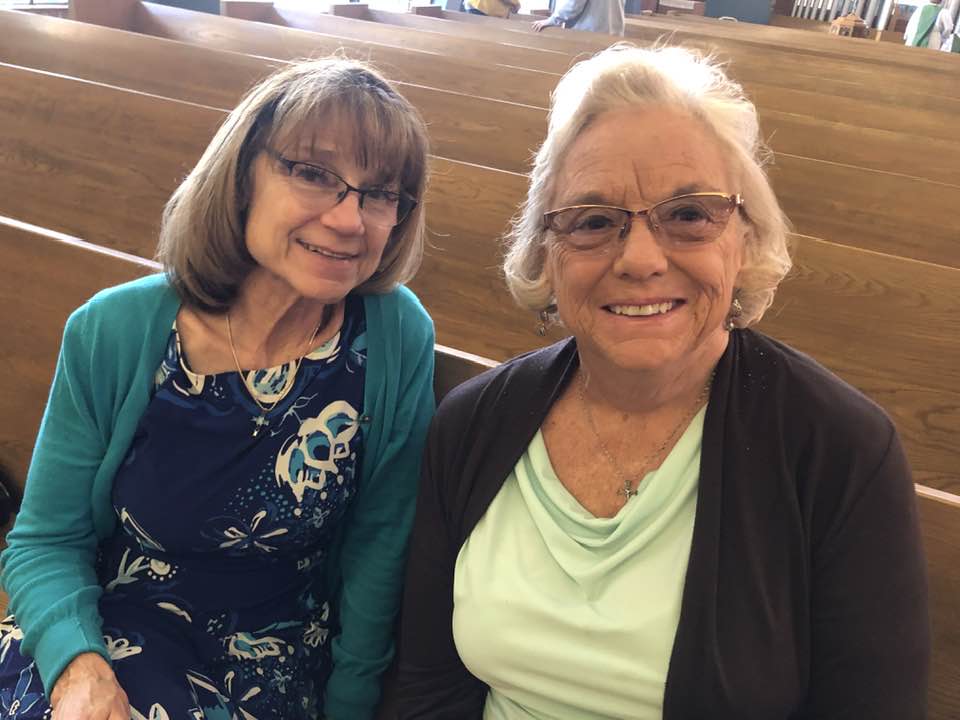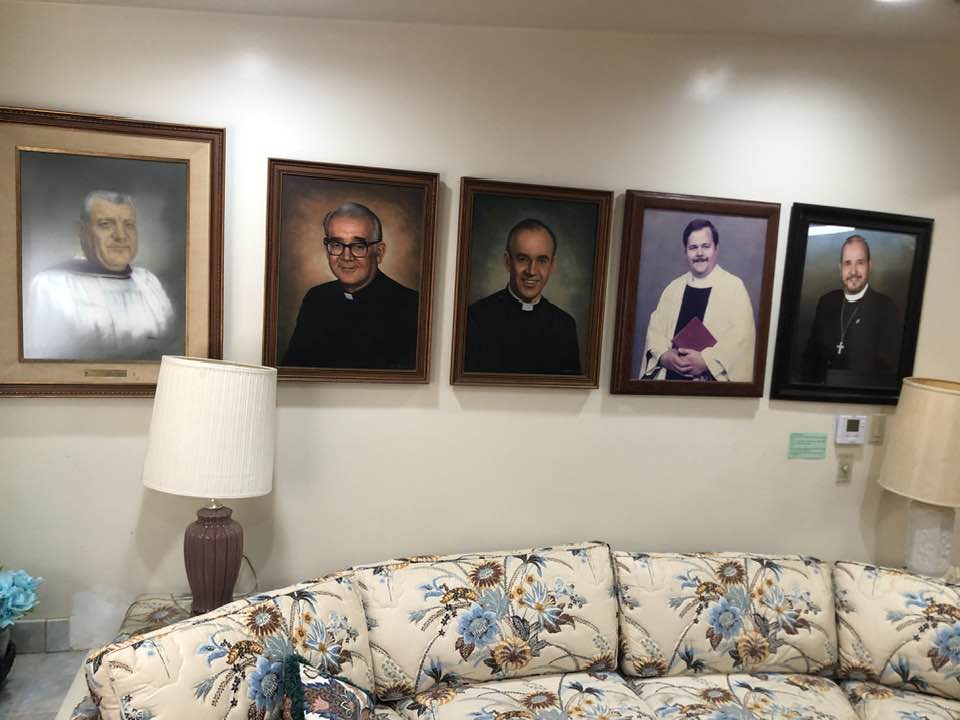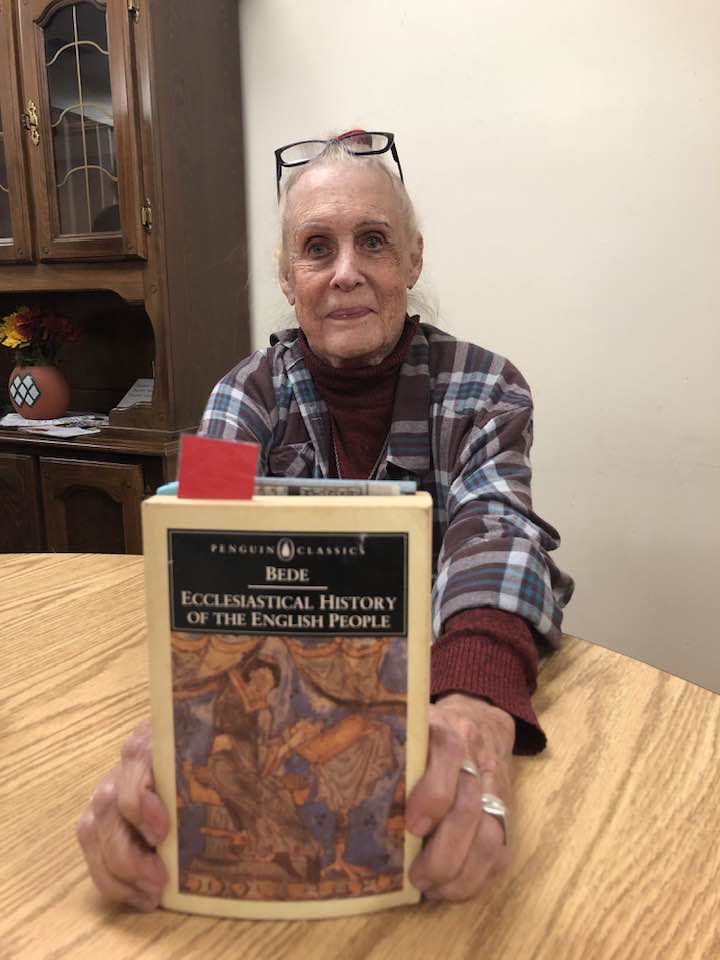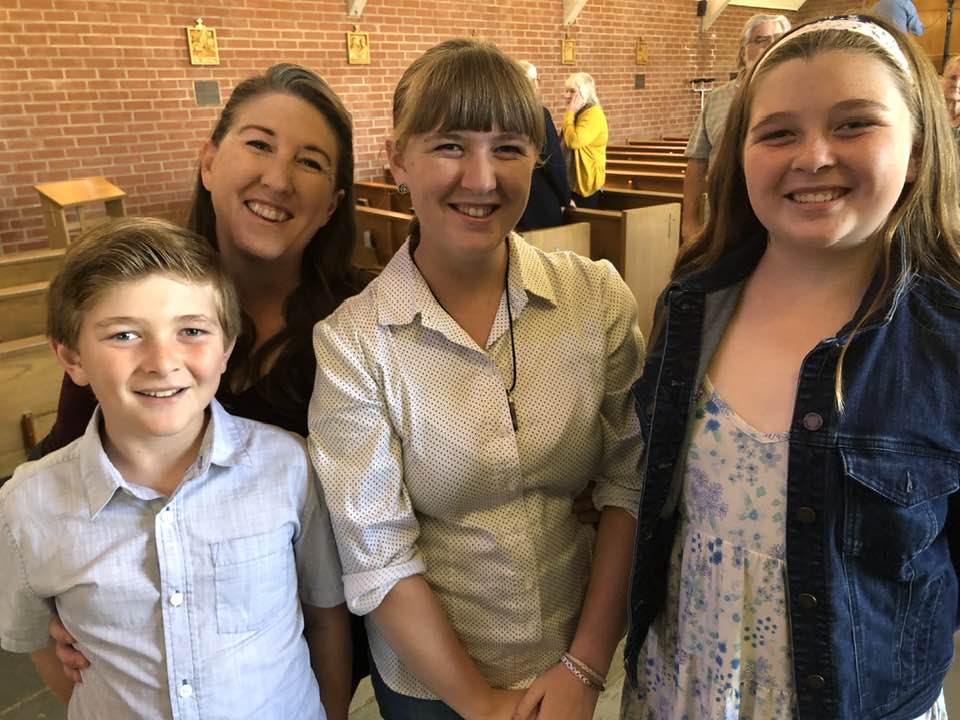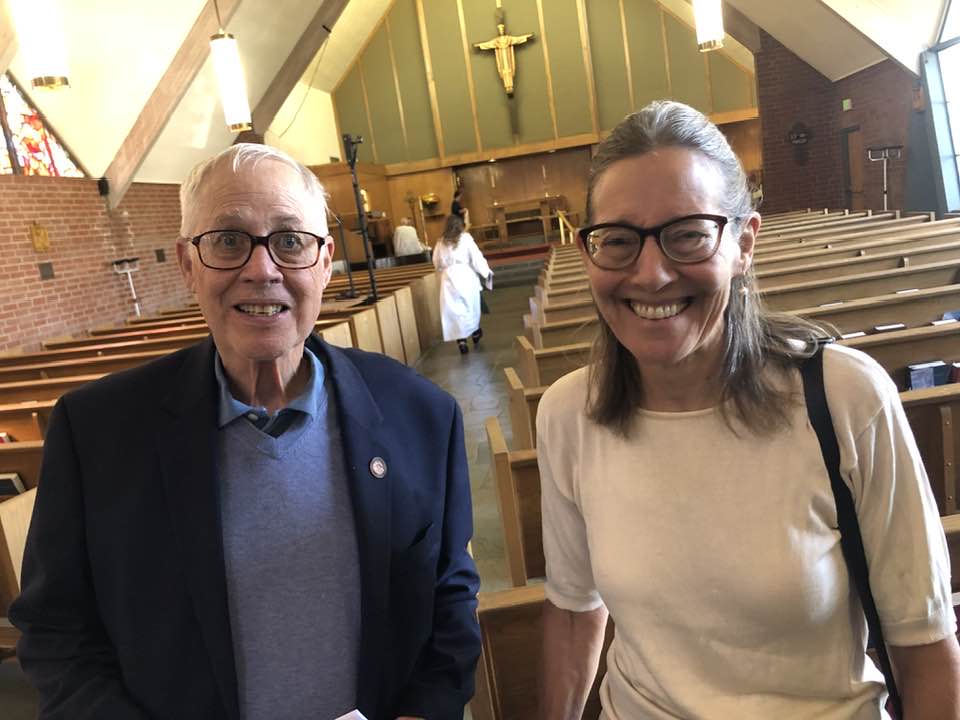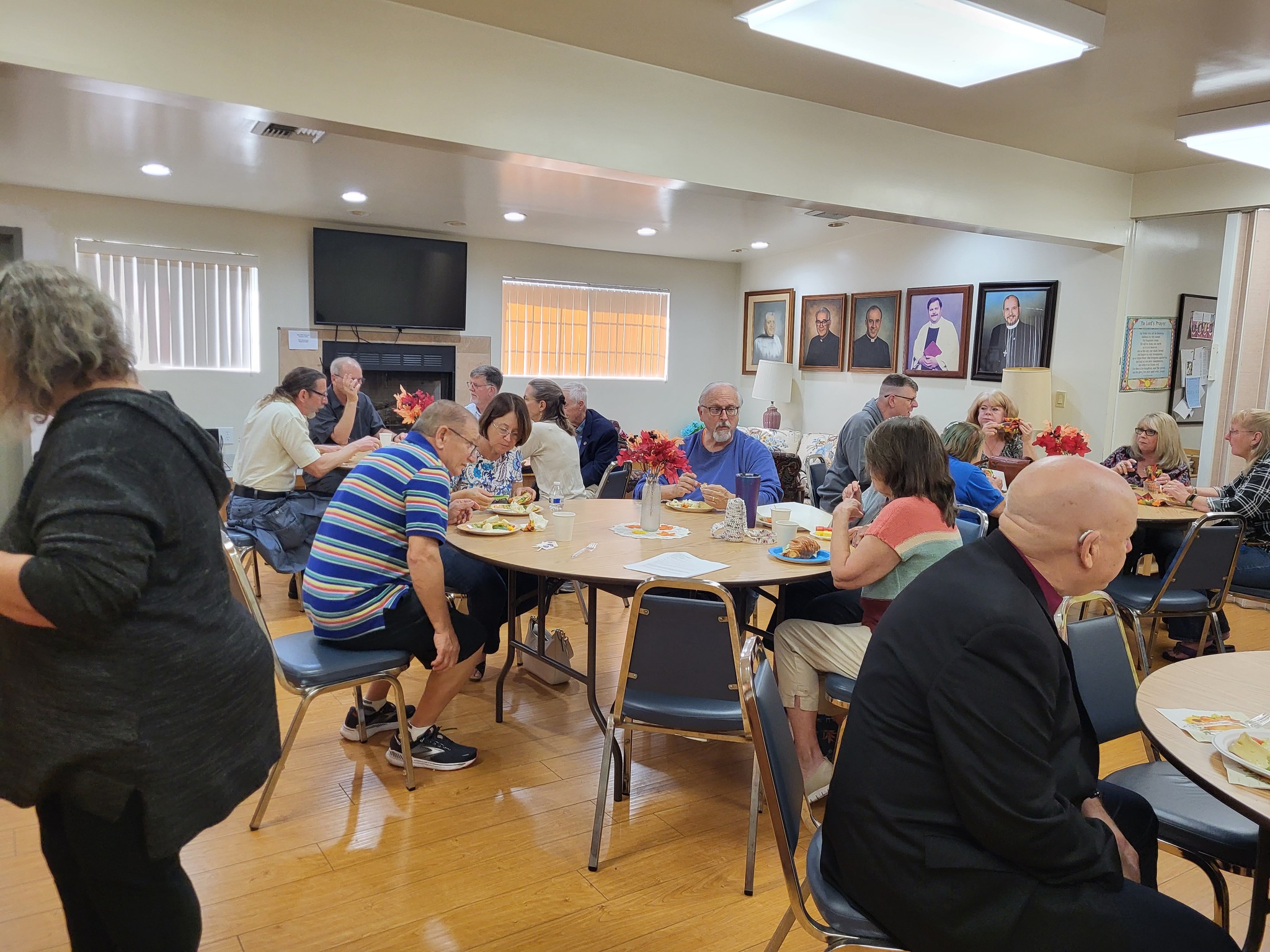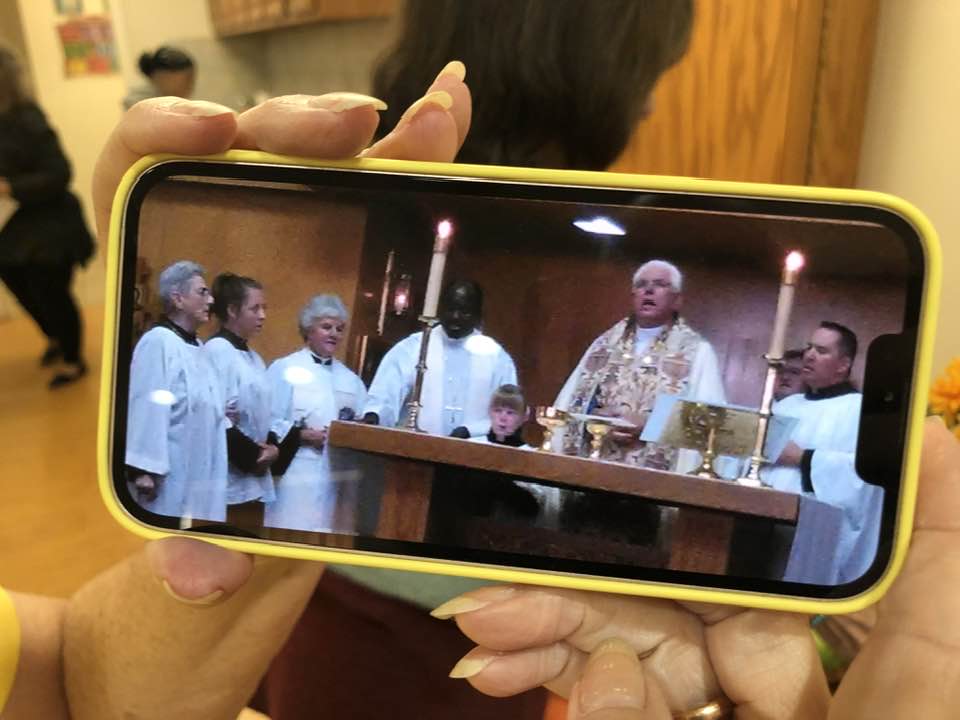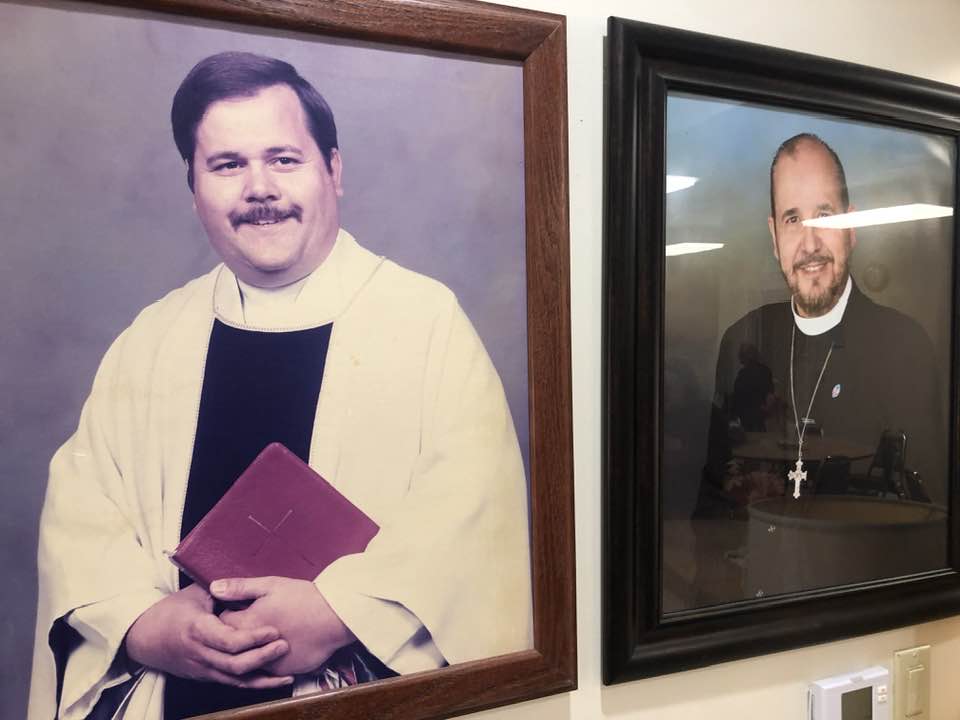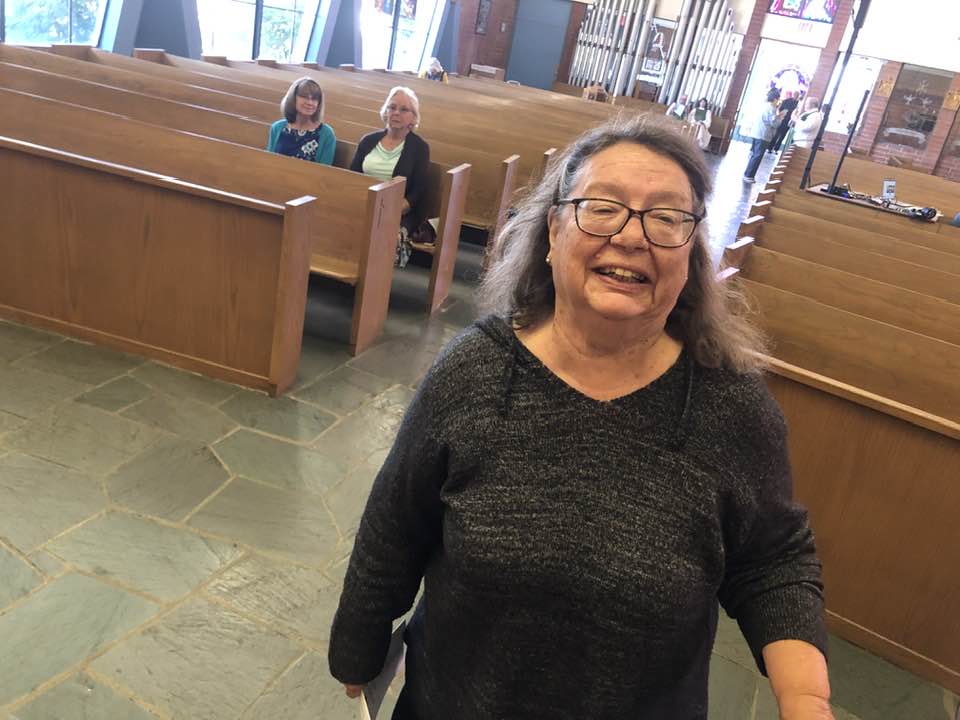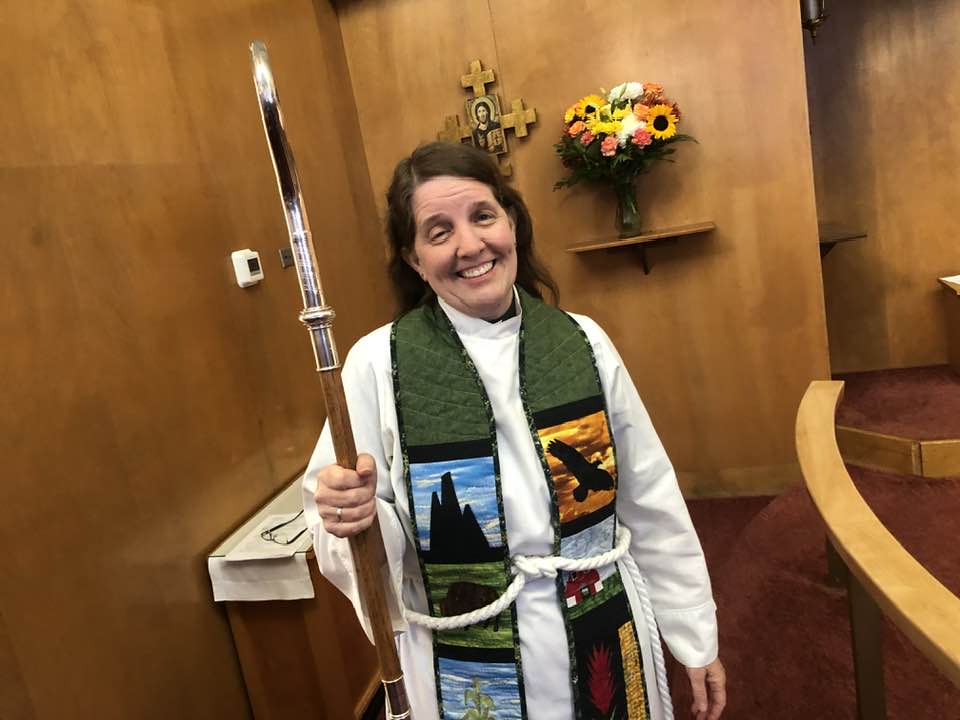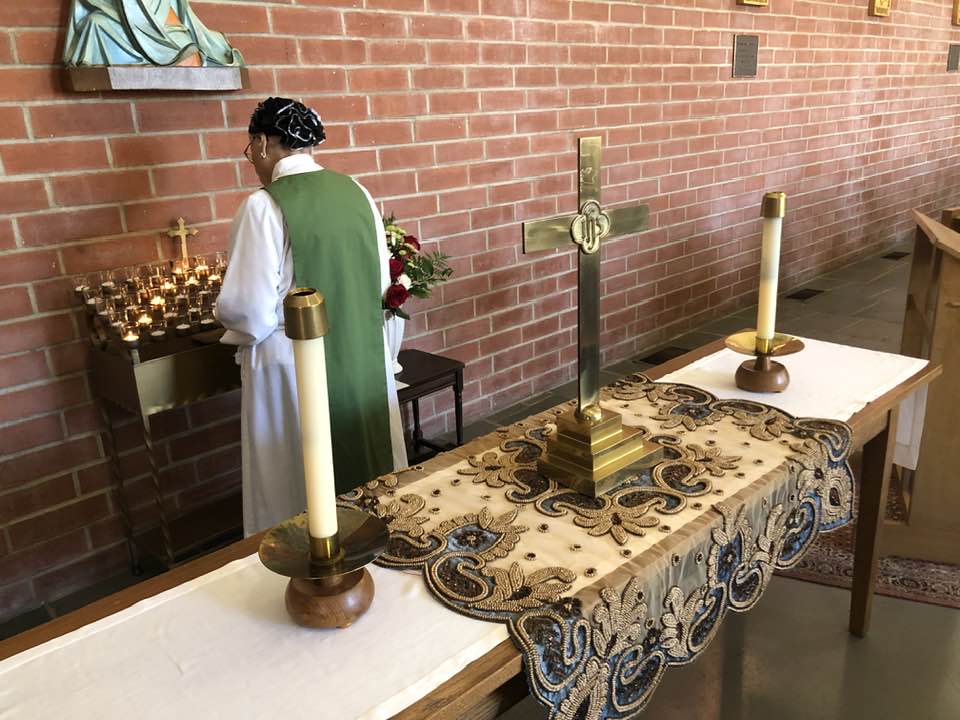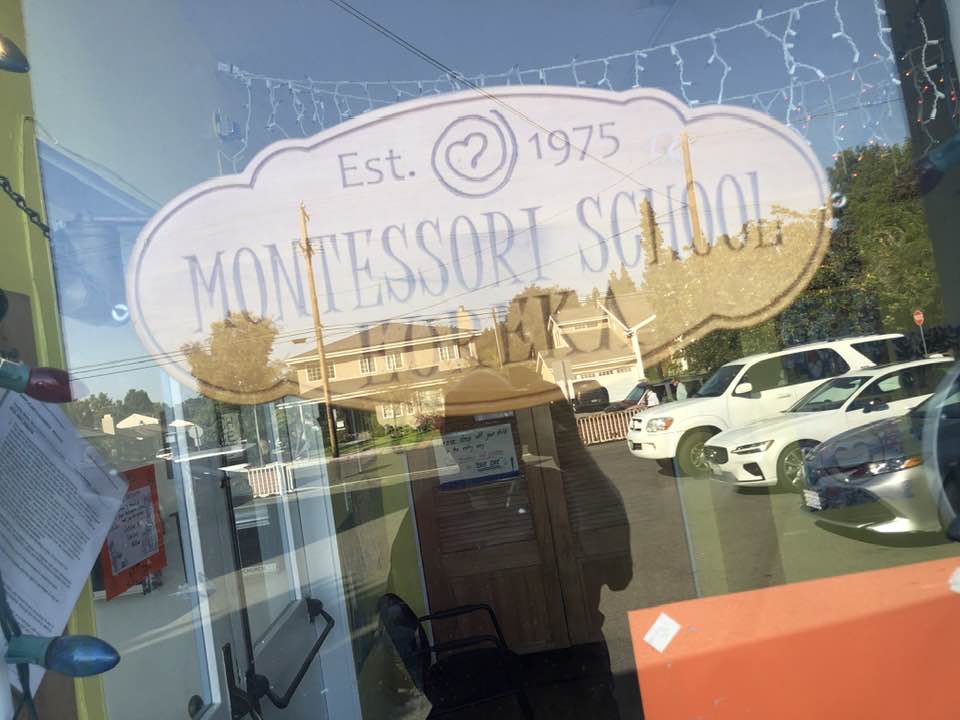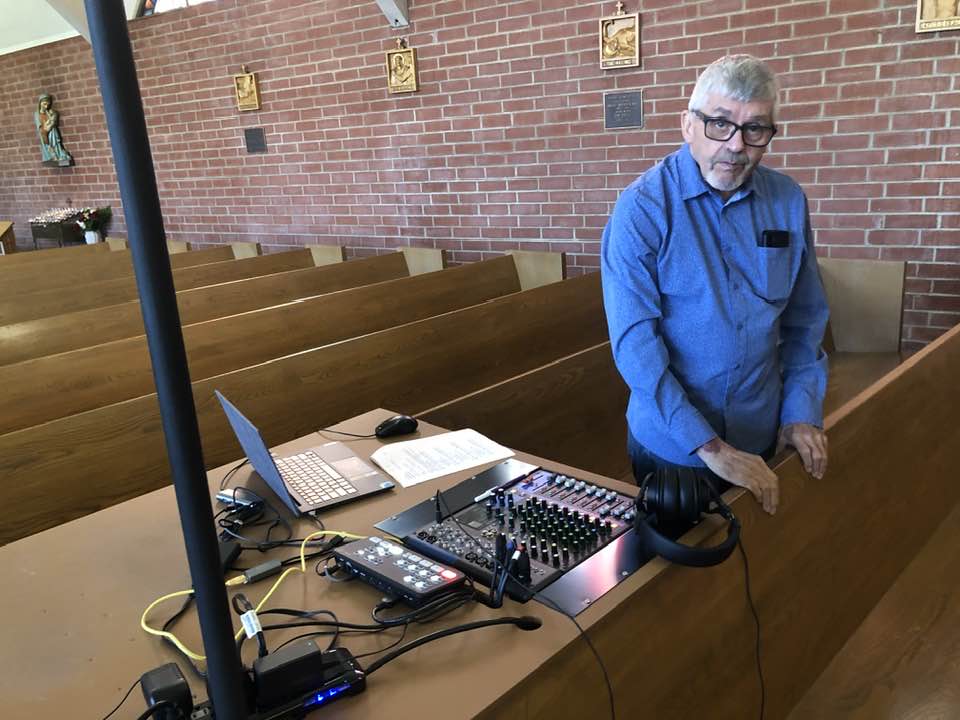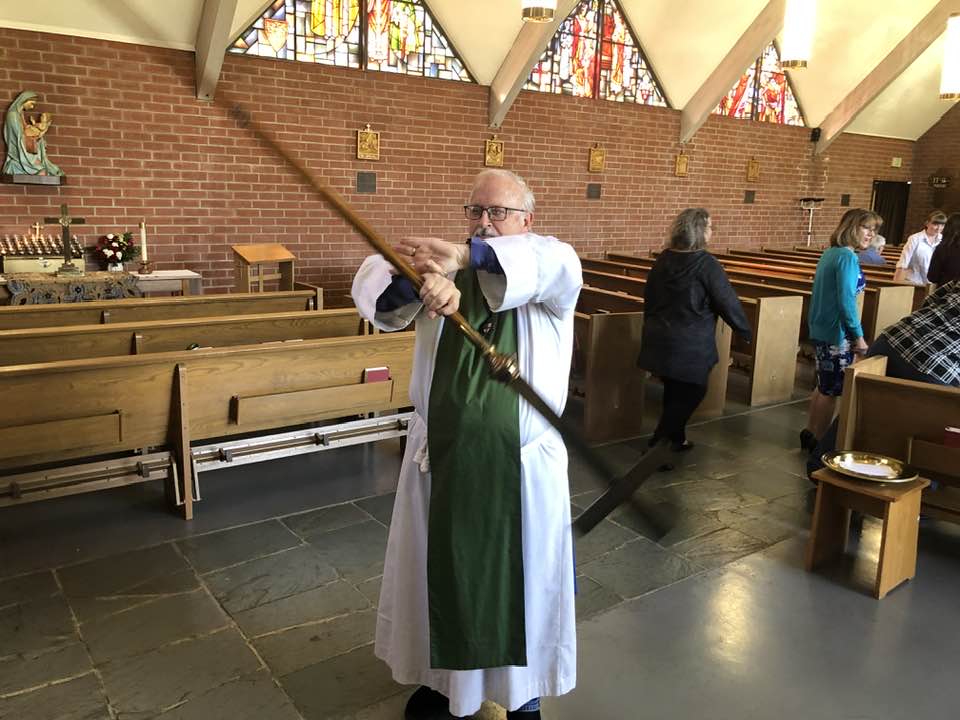
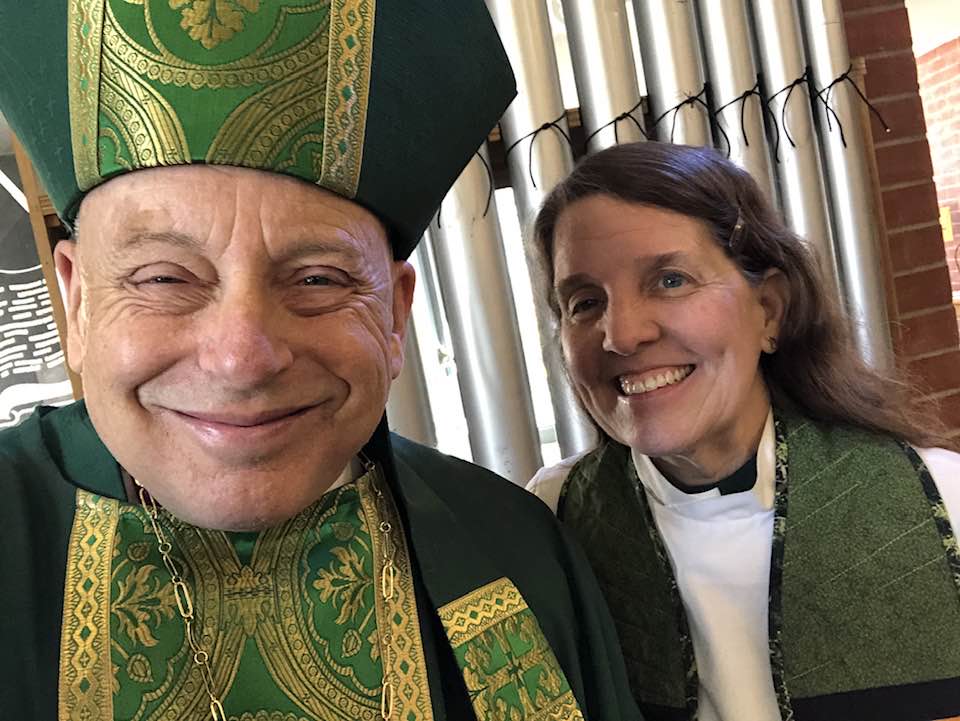
Numbering what’s precious and unique about church these days, I’m not sure we talk enough about the small miracle of coffee hour small talk.
My Sunday visitation was at Saint Thomas of Canterbury Episcopal Church of Long Beach CA, where the Rev. Sharon Sheffield has been vicar since 2018. The worship was beautiful, especially when Sharon’s voice twinned with the choirs’.
I was along as usual to preach and celebrate. All is well at this small, hearty mission church. Former bishop’s warden Sue Edwards interrupted a long weekend in Julian with her friends and her trailer to drive home and serve as my chaplain. Wardens Allen Stout and Shelley Arnold welcomed me warmly. Mo. Sharon’s formation occurred at nearby St. Gregory’s Episcopal Church, Long Beach, CA. She and its rector, the Rev. Michael K. Fincher, continue to cultivate common bonds. A capital campaign is nearing completion.
But this morning I’m dwelling on what I learned at the reception. I shared a table with a member who had been dipping into Bede’s “Ecclesiastical History of the English People.” A couple told me about their artists’ life, one a church musician, the other a sculptor. A veteran teacher said she thinks too many parents are looking at their phones instead of talking to their children. When she took a poll, she learned a third of her students eat dinner alone in their rooms. A retired colleague with a new grandchild told me that almost all babies who present in the breech position are now born via Caesarean section, since younger doctors have little if any experience delivering them vaginally. At our table, we ever managed some gingerly talk about politics and why we thought the big box church next door had more worshipers.
I refuse to take this for granted, if only because we could lose it so easily. We got a foretaste during COVID. I’m aware of no other settings in 21st century U.S. society comparable to these, where people come together voluntarily, across vocational and often socio-economic lines, to spend an hour celebrating their unity in Christ and then another the variety of life. People expressing curiosity about one another in a self-absorbed era, enjoying fellowship while by and large keeping their phones tucked away, asking and listening and noshing and laughing and sometimes arguing.
We could live without it, but we’re not supposed to. If it were gone, social scientists would bemoan the resulting spikes in anxiety, social isolation, and depression. Grants would become available to try to recreate it. Or we could count our blessings and sign up to bring the donuts, quiche, or grapes next week.
